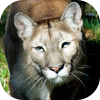18 February 2024:
On the 16th of January 2024 Chris died of invasive skin cancer. Fortunately he died peacefully at our home in Loxton. Our books and apps will 'live' on, I (Mathilde) will maintain this website, although with some changes. Travelling will of course be reduced, I am considering adding content, for example the many popular articles Chris wrote from the 1970s onward. Our image, video and audio library will continue to be available, as will the Stuart on Nature YouTube Channel and the Stuart on Nature Facebook page.
06 January 2023 - Rainfall in Loxton, Northern Cape:
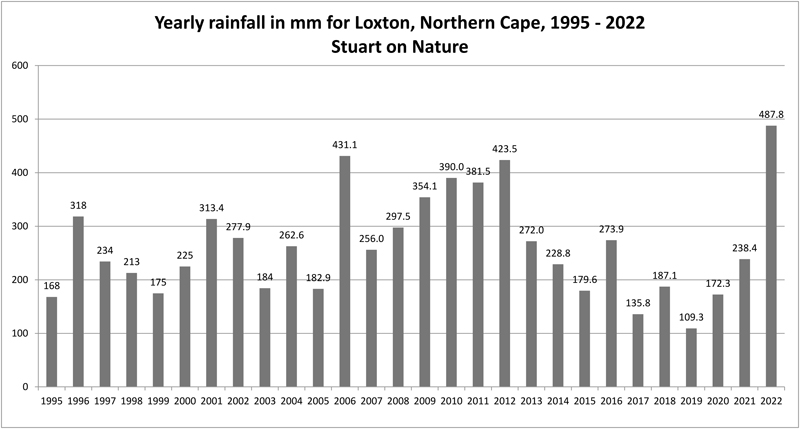
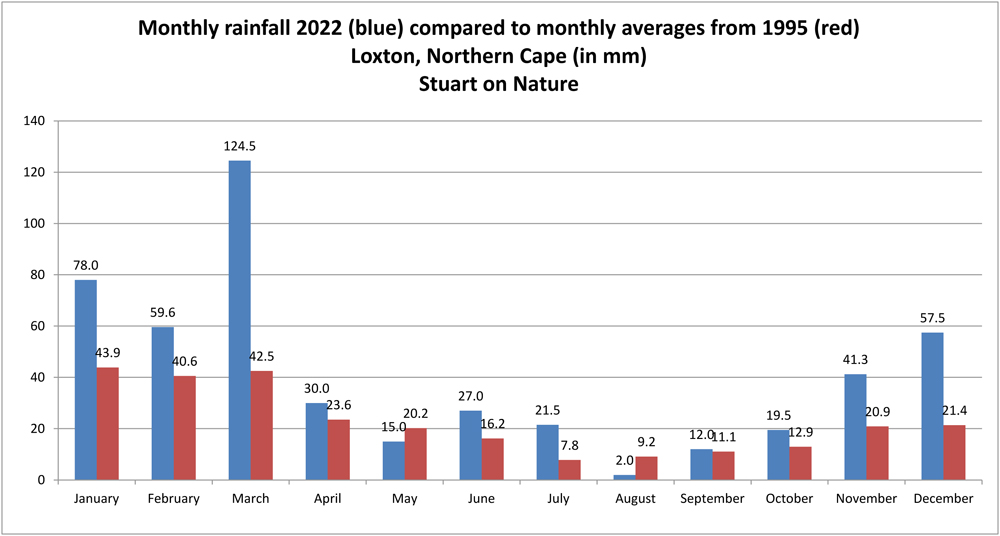
31 March 2022
Today we decided to cancel our Twitter account. We are sick and tired of the continuous censoring of posts/tweets/statements/opinions, who are they to tell us what is "right or wrong".
18 March 2022:
Recently we did our first Zoom interview for a podcast for Mammal Watching. Jon Hall and Charles Foley very professionally and painlessly led us into this new venture. Click on Podcasts on our menu button or click the link here.
09 February 2022:
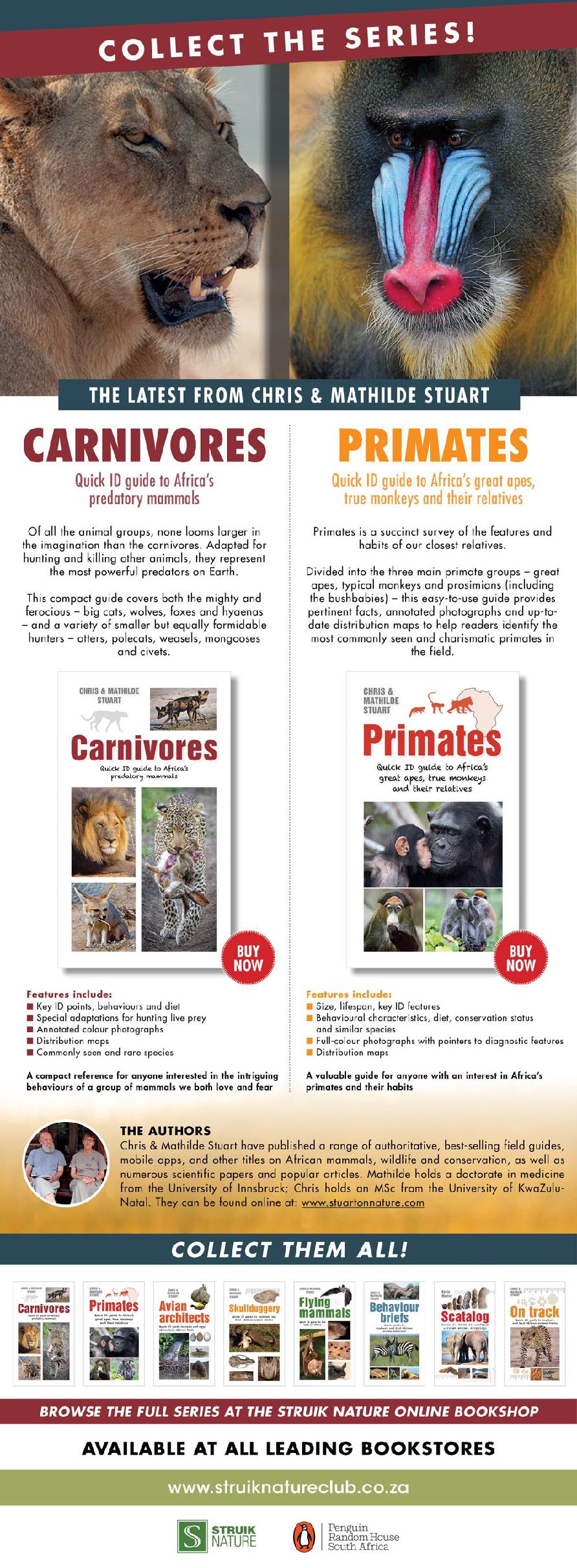
01 January 2022 - Rainfall summaries for Loxton, Northern Cape
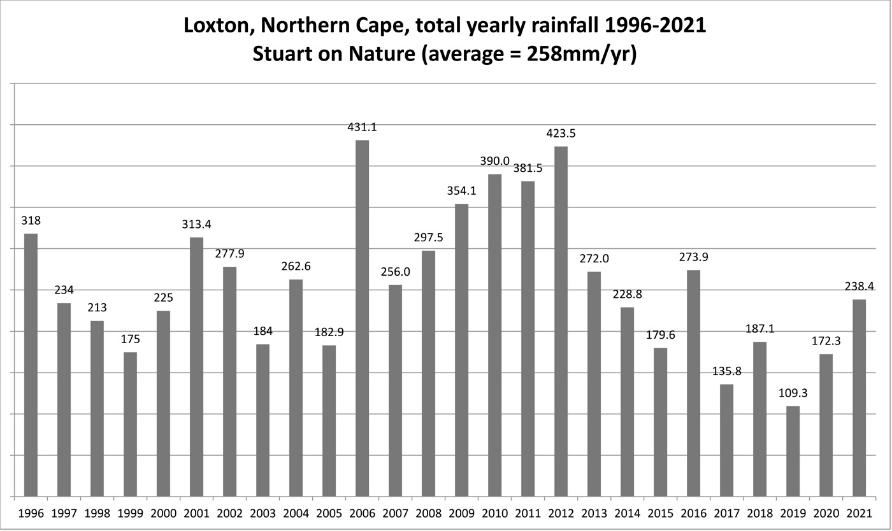
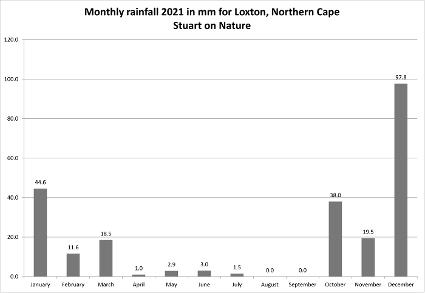
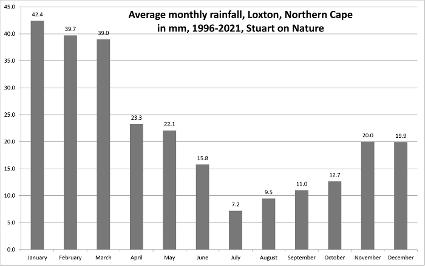
11 November 2021
Why not take part in this competition? Click here

04. January 2020: The updated rainfall graphs for Loxton:
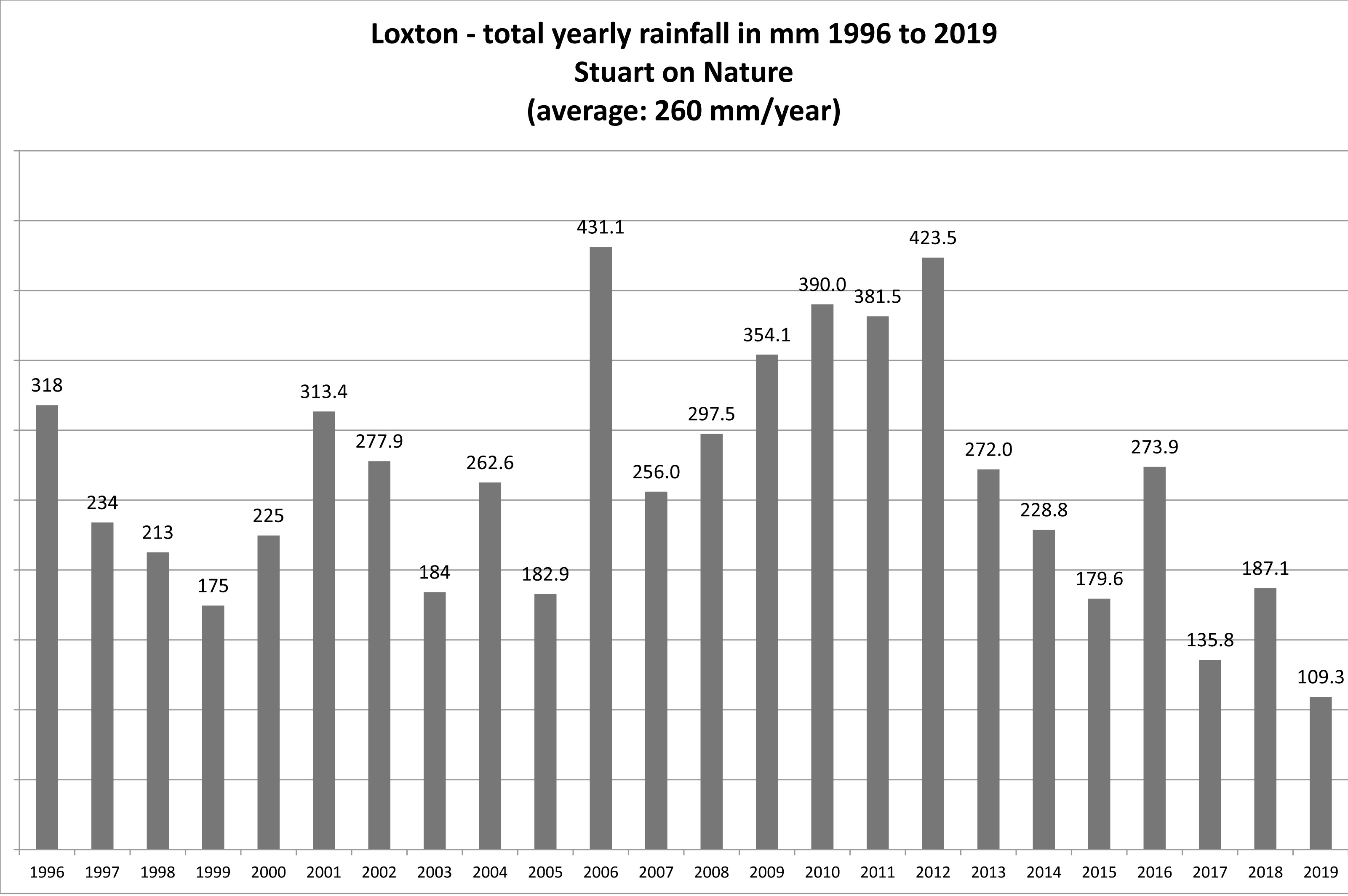
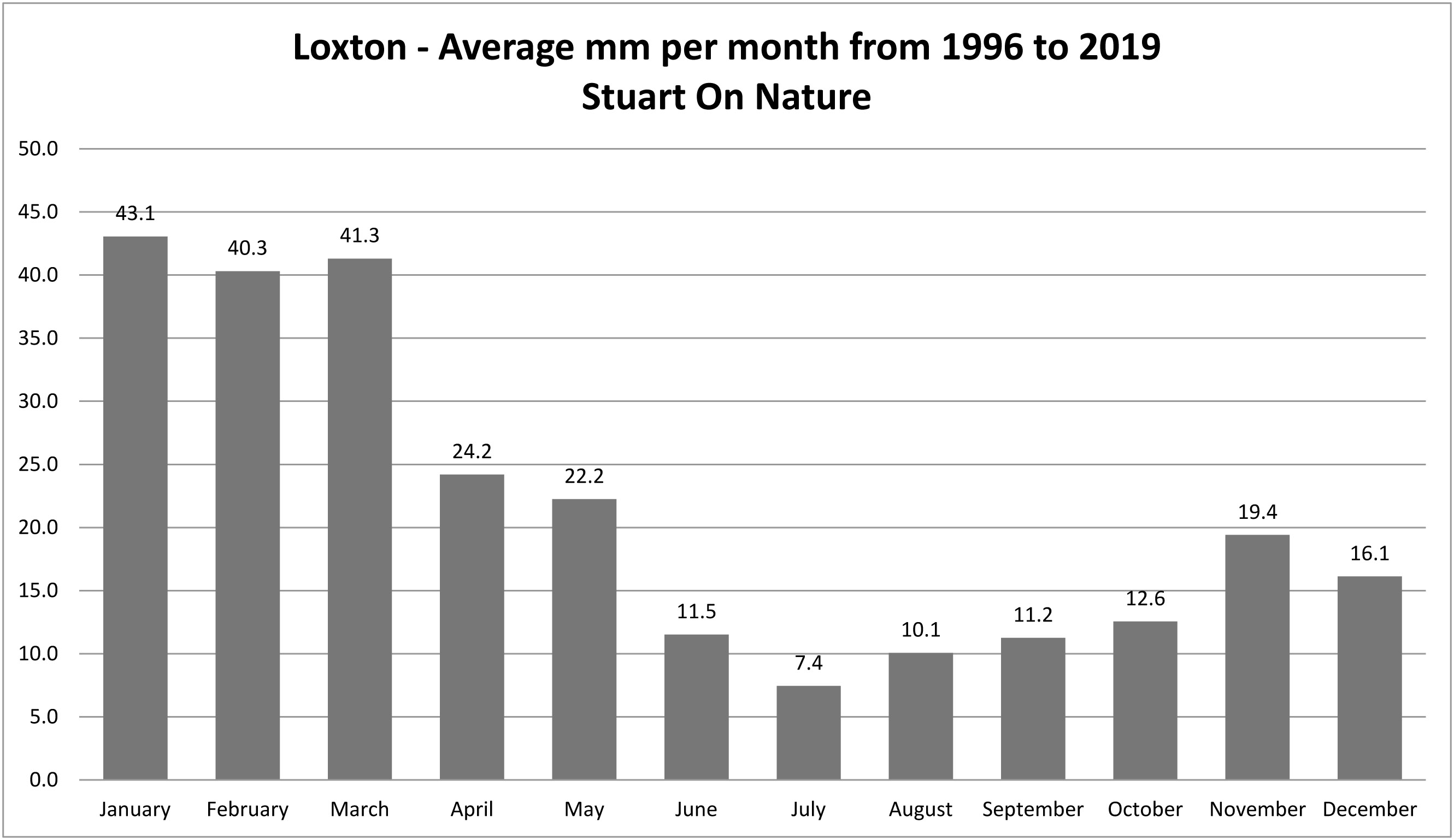
March 2019:
The first update of Stuarts' African Mammals app has been done, the latest taxonomic changes were integrated, some new images have also been added.
Stuarts' Field Guide to National Parks & Game Reserves of East Africa is now also available as e-book. https://penguinbookssa.snapplify.com/product/9781775846253
29. November 2018:
Our Field Guide to Tracks & Signs is getting a make-over, it is now also called Stuarts' Field Guide to Tracks & Signs of Southern, Central & East African Wildlife. A few updates have been made in the text section. The publisher expects it to be on the bookshelves in June 2019.
June 2018:
ROE DEER ON OUR DOORSTEP
Now that our Höf meadow in the Mühlviertel is no longer host to cattle or horses, it has become much more diverse, with flowers emerging that we have not seen before over the past 25 years; which of course has increased insect diversity.
The Roe Deer have become more trusting and a ewe has dropped her fawns close to the house. One, perhaps foolishly, wandered within two metres of us as we stood on the stoep / veranda. It satisfied its curiosity and with a few bleating calls moved off to settle down in the long grass around one of the old apple trees. The ewe comes in to suckle the fawn and shows no fear. There are three buck that feed in the meadow and surrounds, a 5 year old and two yearlings. The latter two will be driven away at the onset of the mating season, or fall to hunters' guns on the slopes of the forest.
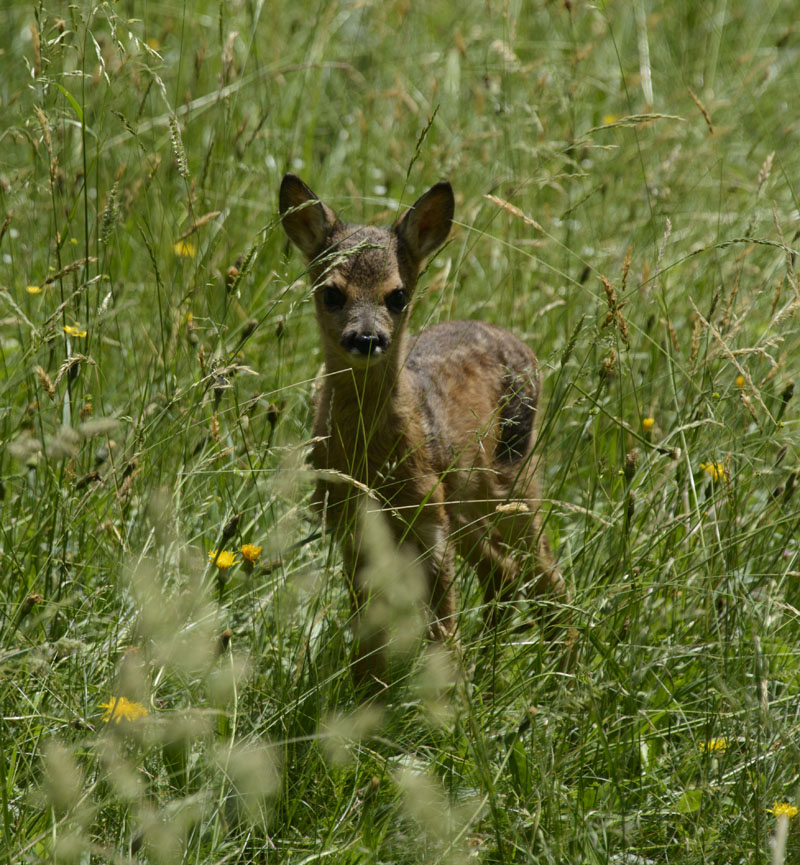
17. April 2018:
Our on-line course Animal Tracks & Signs of Africa will be updated soon, we have just delivered new material to Wildlife Campus. This course has been running for over 10 years and has been very successful. Check it out here: www.wildlifecampus.com
12. March 2018:
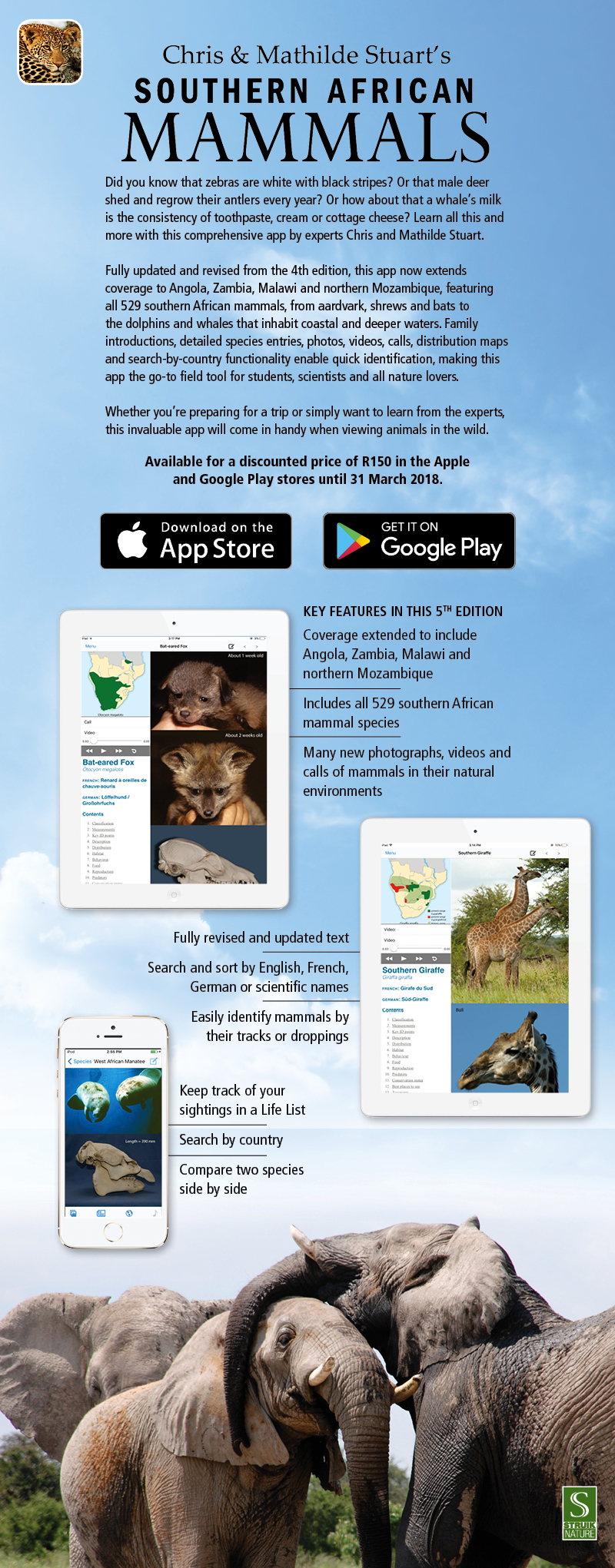
04. January 2018:
The old year done - the rainfall charts are updated - not a very nice result: the lowest annual rainfall since we started keeping records in Loxton in 1996, and also the monthly averages dropped for all 12 months. We hope it gets better in 2018. Happy New Year to all!
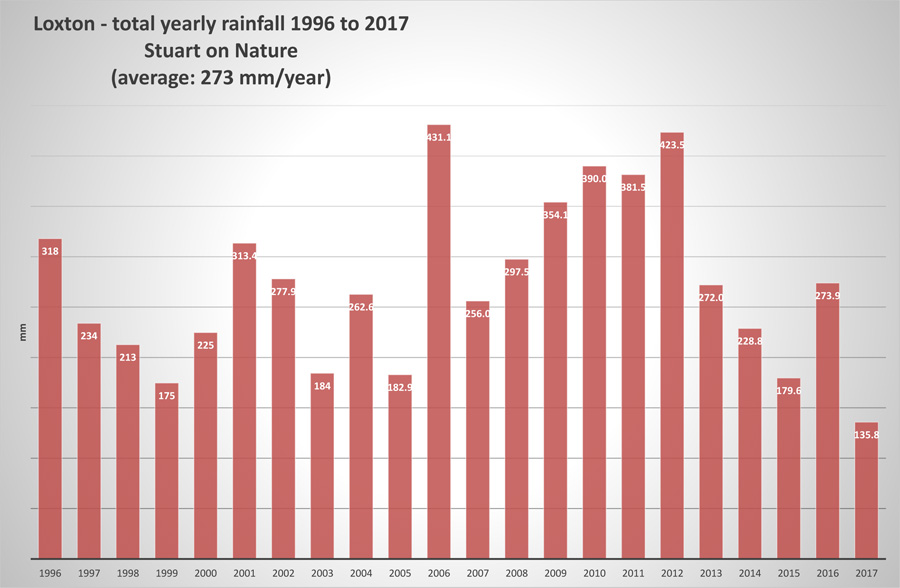

08. December 2017:
Promotion of our App 'Stuarts' African Mammals ' has started in earnest.
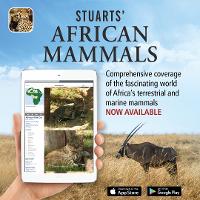
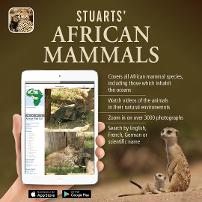
14. November 2017:
The completely revised and expanded Stuarts' Mammals of Southern Africa App should be available in January 2018 - for Apple and Android devices.
11. September 2017:
The latest newsletter of the IUCN / SSC Afrotheria Specialist Group (No 13) is now available here.
14. January 2017 - Waterfowl Bonanza:
Although good rains have been falling to the east of Loxton, we have had just 18 mm so far this January. This after several months of drought. Fortunately, the Loxton dam is still quite high after it filled exactly a year ago. It has been a haven for waterfowl during this time.
On the 9th of January 2017 there were over 100 Greater Flamingos, about 80 Black-necked Grebes, a mix of some 150 ducks, including Cape Teal (the majority), Cape Shovelers, Yellowbill Ducks, Pochards and South African Shelduck. A week earlier there was a contingent of about 50 Maccoa Ducks, rare visitors to this part of the Karoo.
Now with the good rains to our east we expect them to disperse.
02. January 2017:
One of the jobs on 1st January was to update our rainfall summary for Loxton, Northern Cape, South Africa, if you are interested:
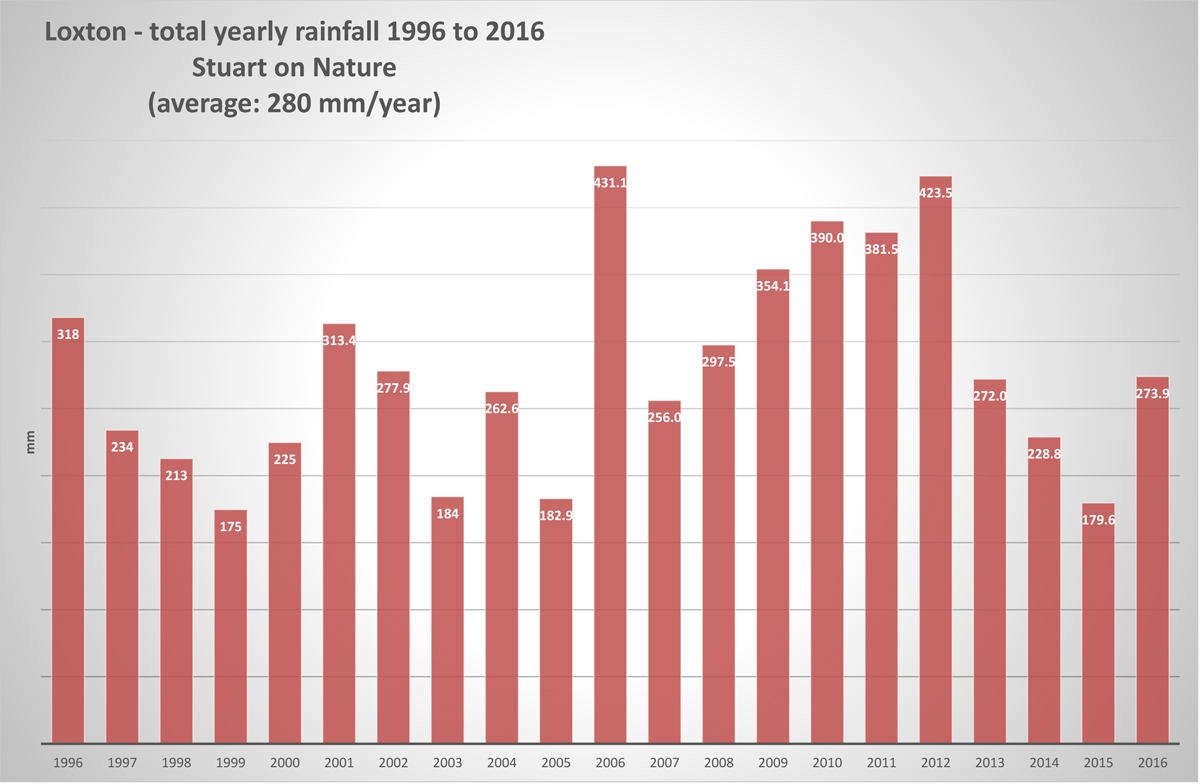
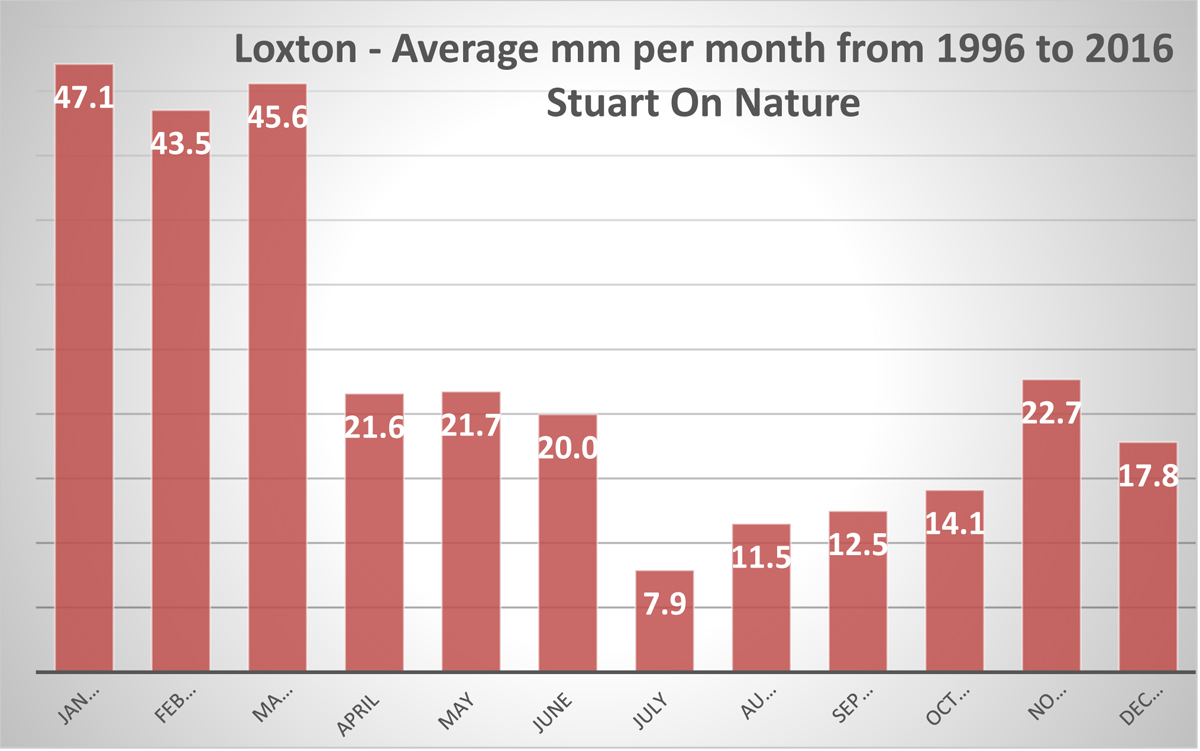
Our next trip:
25th of January we are off to Maun, Botswana. We will visit Moremi Game Reserve, possibly Chobe, then into Northern Namibia, Etosha NP, Skeleton Coast, Namib Naukluft Park and back.
30. August 2016:
We have just finished editing the Newsletter No 12 for the Afrotheria Specialist Group, it is now available on-line at: http://www.afrotheria.net/newsletter.php
11. May 2016:
We are leaving on the 18th May to spend the northern summer in our European base. Our email remains the same.
02. May 2016:
No real news to report, autumn is turning into winter in Loxton, yesterday the first time this year the minimum temperature dropped to zero.
22 January 2016:
Lovely rain is falling in Loxton - and surrounds. Not quite sure how far.
Yesterday - 21. January - 53 mm fell in 24 hours, this is a record for the 20 years we are living in Loxton and keeping records. And today the rain continues. This might even fill the Loxton dam, which was full the last time in 2010.
23 January 2016:
Another 30 mm fell yesterday, and this morning the dam looks like this:


